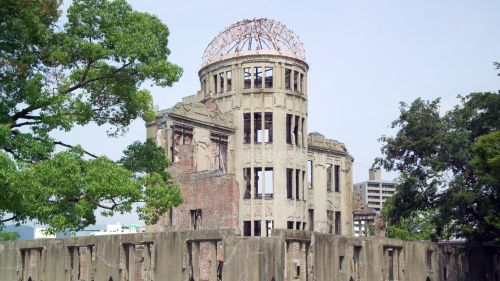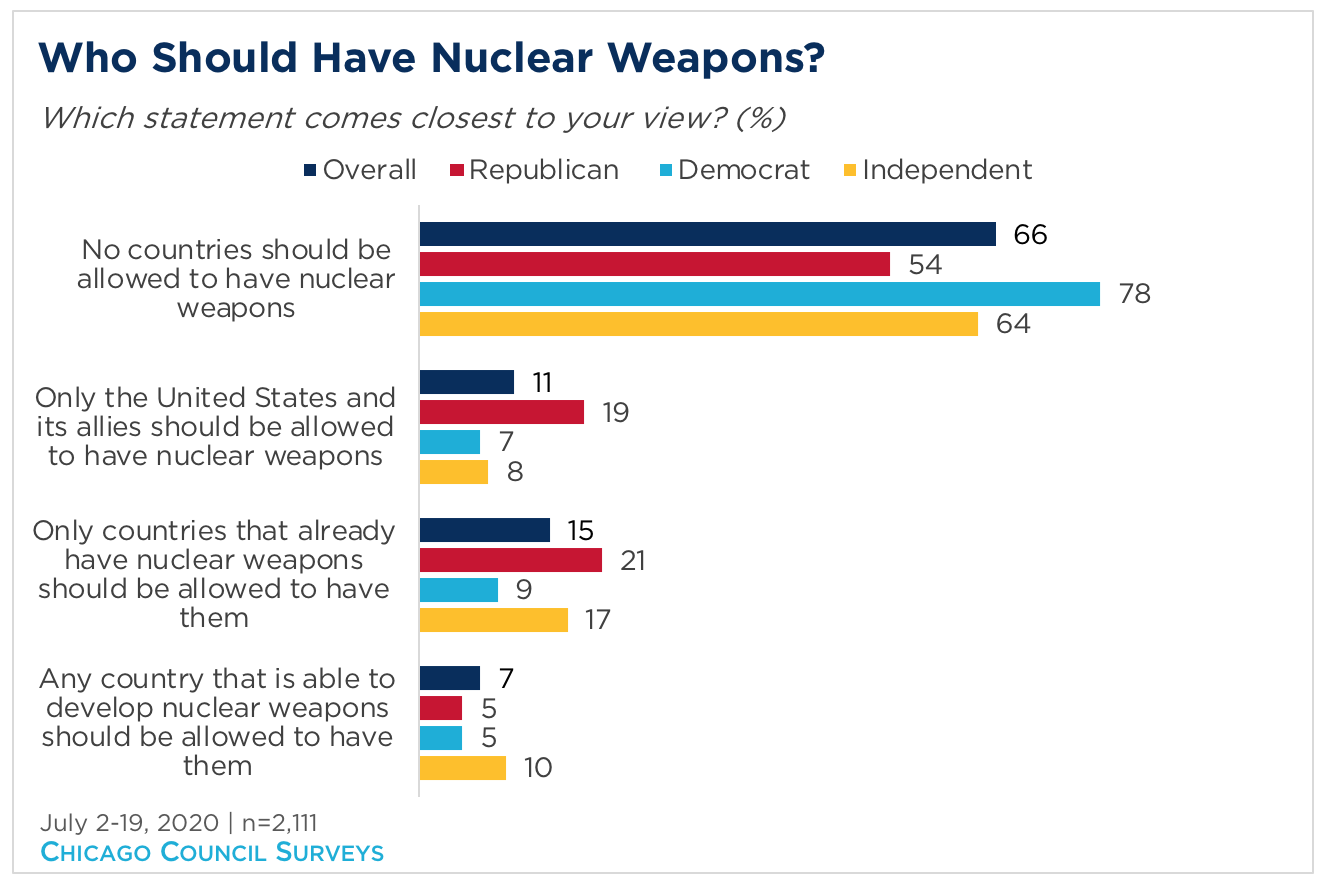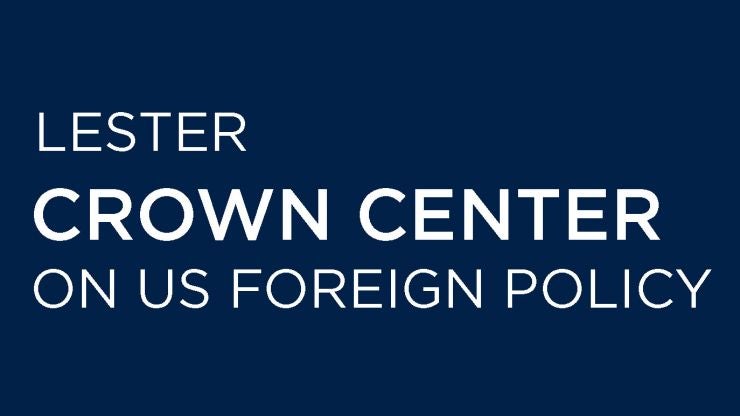Americans Want a Nuclear-Free World

Today, most Americans don’t want a world with nuclear weapons. According to the 2020 Chicago Council Survey two-thirds of Americans (66%) believe that no country should be allowed to have nuclear weapons.
This year marks the 75th anniversary of the nuclear bombing of Hiroshima, the first use of nuclear weapons in wartime. Gallup polling conducted August 10-15, 1945, just days after the United States dropped “Little Boy” on Hiroshima, a majority of Americans (85%) approved of using the then-new atomic bomb on Japanese cities.1 Several weeks later, seven in ten Americans (69%) told Gallup pollsters they thought the development of the atom bomb was a good thing.2 Since then, the spread of nuclear weapons, attempts at nuclear arms control, and fear of nuclear arms races have all been major elements of international politics.
Contemporary headlines warn that the world may be again entering a nuclear arms race. The United States is plowing trillions into modernizing its nuclear arsenal, while at the same time preparing to end the New START arms control agreement between the United States and Russia. In the 2019 Chicago Council Survey, half of Americans (48%) described the possibility of a new global arms race as a critical threat to the United States, including 43 percent of Republicans, 55 percent of Democrats, and 46 percent of Independents.
Today, most Americans don’t want a world with nuclear weapons. According to the 2020 Chicago Council Survey, conducted July 2-19, two-thirds of Americans (66%) believe that no country should be allowed to have nuclear weapons, including majorities of Republicans (54%), Democrats (78%), and Independents (64%). And few Americans (7%) say that any country able to develop nuclear weapons should be allowed to have them.

Some Americans favor a more limited existence for nuclear weapons. One in ten (11%) say that only the United States and its allies should be allowed to have nuclear weapons, while fifteen percent say that only the countries that already have nuclear weapons should be allowed to have them. Republicans are somewhat more likely than Democrats to say that some states should be allowed to have nuclear weapons, with two in ten saying that the US and allies or current nuclear-weapons states should be allowed to possess them.
The view that no country should have nuclear weapons has been a consistent one among the public for the last fifteen years. AP polls from 2005 (66%) and 2010 (62%) found similar proportions of Americans endorsing the idea that no country should be allowed to have nuclear weapons. That stance is also reflected in Americans’ longstanding prioritization of nuclear nonproliferation efforts. In Chicago Council polling from 1990 through 2018, more than two-thirds of Americans consistently named preventing the spread of nuclear weapons as a very important goal for US foreign policy, making it one of the public’s top goals.
For more results from the 2020 Chicago Council Survey, be sure to sign up for email updates.
Methodology
This analysis is based on data from the 2020 Chicago Council Survey of the American public on foreign policy, a project of the Lester Crown Center on US Foreign Policy. The 2020 Chicago Council Survey was conducted July 2-19, 2020 by IPSOS using their large-scale nationwide online research panel, KnowledgePanel, among a weighted national sample of 2,111 adults, 18 years of age or older, living in all 50 US states and the District of Columbia. The margin of sampling error for the full sample is ±2.3 percentage points, including a design effect of 1.2056. The margin of error is higher for partisan subgroups or for partial-sample items.
Partisan identification is based on respondents’ answer to a standard partisan self-identification question: “Generally speaking, do you think of yourself as a Republican, a Democrat, an Independent, or what?”
- 1
Gallup Organization, August 10 - August 15, 1945. Data accessed August 5, 2020, via Roper Center for Public Opinion Research-iPOLL. [USGALLUP.082645.RK08C]
- 2
Gallup Organization, August 24 - August 29, 1945. Data accessed August 5, 2020, via Roper Center for Public Opinion Research-iPOLL. [USGALLUP.091945.RK03A]



